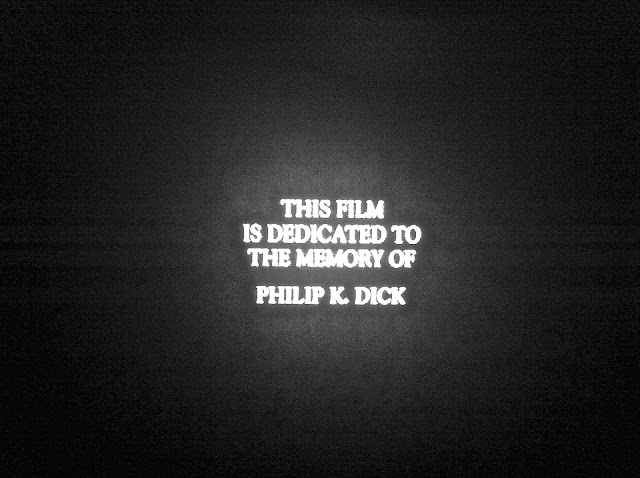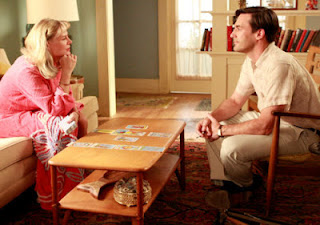Awesome secrets. This is what we want, awesome secrets. The trouble with awesome secrets is that when they come our way, we usually have no idea what to do with them. More likely, we don't even recognize them.
"I remember asking Mal, our road manager, for what seemed like years and years, 'Have you got a pencil?' But of course everyone was so stoned they couldn't produce a pencil, let alone a combination of pencil and paper.
I'd been going through this thing of levels, during the evening. And at each level I'd meet all these people again. 'Hahaha! It's you!' And then I'd metamorphose on to another level. Anyway, Mal gave me this little slip of paper in the morning, and written on it was, 'There are seven levels!' Actually it wasn't bad. Not bad for an amateur. And we pissed ourselves laughing. I mean, 'What the fuck's that? What the fuck are the seven levels?' But looking back, it's actually a pretty succinct comment; it ties in with a lot of major religions but I didn't know that then."
Paul McCartney
New York City, August 28, 1964, somewhere in the Delmonico Hotel, Bob Dylan, John Lennon, George Harrison, Ringo Starr, and Paul McCartney were all gathered together in one room. Dylan apparently wanted some "cheap wine", and when Mal Evans was sent out to get some, Dylan suggested a toke. Brian Epstein, Beatles manager, explained, to Dylan's great surprise, that the Fab Four didn't get high.
Dylan looked disbelievingly from face to face.
"But what about your song?" he asked, "The one about getting high?"
The Beatles were stupefied. "Which song?" John managed to ask.
Dylan said, "You know..." and then he sang, "and when I touch you I get high, I get high..."
John flushed with embarrassment. "Those aren't the words," he admitted. "The words are, 'I can't hide, I can't hide, I can't hide...'"
The Love You Make
Peter Brown
Naturally, Dylan busted out the stash, joints were rolled, and, as John Lennon said, "It was party time."
Mens
Pronunciation
IPA: /meːns/
Etymology
From Proto-Indo-European *mn̥ti-, oblique stem of *méntis (“thought”). Cognates include Ancient Greek αὐτόματος (autómatos), Sanskrit मति (matí), and Old English ġemynd (English mind).
Noun
mēns (genitive mentis); f, third declension
mind
The concept of
set and setting applies to all boundary dissolving experiences. It is especially important when considering the first time one is introduced to boundary dissolving substances.
Categorizing the set and setting of the Beatles suite that August night at the Delmonico is difficult, recreating it is impossible, and I doubt that any one smoking marijuana for the first time will ever experience the particular dynamics that were at play. Five of the most famous artists in the world, one the most famous folk-singer, the other four the most famous rock and roll band, all together in one room, sharing a completely life changing moment, one that marked the beginning of a cultural shift that is best categorized as a revolution.
The Beatles spent the next few hours in hilarity, looked upon with amusement by Dylan. Brian Epstein kept saying, "I'm so high I'm on the ceiling. I'm up on the ceiling."
Paul McCartney, meanwhile, was struck by the profundity of the occasion, telling anyone who would listen that he was "thinking for the first time, really thinking."
Can the average person ever hope to recreate the kind of set and setting at play in the Delmonico that night? Can ANY person ever approach that kind of set and setting for their first boundary dissolving experience with marijuana?

Coincidentia oppositorum is a Latin phrase meaning coincidence of opposites. It is a neoplatonic term attributed to 15th century German polymath Nicholas of Cusa in his essay, De Docta Ignorantia (1440). Mircea Eliade, a 20th century historian of religion, used the term extensively in his essays about myth and ritual, describing the coincidentia oppositorum as "the mythical pattern". Psychiatrist Carl Jung, philosopher and Islamic Studies professor Henry Corbin as well as Jewish philosophers Gershom Scholem and Abraham Joshua Heschel also used the term. In alchemy, coincidentia oppositorum is a synonym for coniunctio. For example, Michael Maier stresses that the union of opposites is the aim of the alchemical work. Or, according to Paracelsus' pupil, Gerhard Dorn, the highest grade of the alchemical coniunctio consisted in the union of the total man with the unus mundus.
The term is also used in describing a revelation of the oneness of things previously believed to be different. Such insight into the unity of things is a kind of transcendence, and is found in various mystical traditions. The idea occurs in the traditions of Tantric Hinduism and Buddhism, in German mysticism, Taoism, Zen and Sufism, among others.
So, let's face it, you and I will never experience getting high in the Delmonico Hotel with Bob Dylan and the Beatles. We'd be lucky to get high with Taylor Swift and Mumford and Sons at the Holiday Inn, but even they would agree that they would be mighty lame replacements. We could try to get famous ourselves, we could try to play the role of Dylan, or Lennon and company. We could. Or we could go another way. The way the Beatles went in search of themselves. And with a little bit of cheating, I propose that we can sneak our mind into the set and setting of the Delmonico if we really want to.
The guru says that we should approach our meditation from a position of clarity, that we should be of a clear mind and clear body. The guru imposes strict guidelines for diet and activity, and sobriety: no meat, no alcohol, no caffeine, no nicotine, no drugs. All of these are impediments to enlightenment.

“Strictly speaking, you cannot as yet speak of knowledge because you do not know where knowledge begins. Knowledge begins with the teaching of the Yellow Submarine. You know the expressions 'macrocosm' and 'microcosm.' This means 'large submarine ' and 'small submarine’ , or 'large globe' and 'small globe.' The universe is regarded as a 'large submarine' and man as a 'small submarine’ analogous to the large one. This establishes, as it were, the idea of the unity and the similarity of the World and Man.
The teaching of the two submarines is known from the Cabala and other more ancient systems. But this teaching is incomplete on its own.
"As above, so below," is an expression which refers to seven submarines, and, well, it’s this part of the talk that gets me in trouble…
It is essential to know that the full teaching on submarines speaks not of two, but of seven submarines, all included within one another to represent a complete photograph of the universe.
The first is the Protocosmos—the Yellow Submarine
The second is the Ayocosmos, the holy cosmos, or the Megalocosmos
The third is the Metros—the Large Cosmos
The fourth is the Deuteronomos—the Lost Cosmos
The fifth is the Mesocosmos—the Middle Earth
The sixth is the Triton—the Lost Cosmic
The seventh level is the Microcosmos—the Atom, the Nugget, or the Meme
As I have previously explained what is called Atom is the smallest amount of any substance in which the substance retains all its properties, physical, chemical, psychical, and cosmic. From this point of view there can, for instance, be an 'atom of chicken.'
The conditions of the action of laws on each plane are determined by the two adjoining submarines, the one above and the one below.
Three submarines next to one another are capable of giving a complete picture of the manifestation of the laws of the universe.
One submarine cannot give a complete picture. Thus in order to know one submarine, it is necessary to know the two adjoining submarines, the one above and the one below the first, that is, one larger and one smaller. Taken together, these two submarines determine the one that lies between them.
In order to understand the meaning of the division of media and the relation of different media to each other, it is necessary to understand what the relation of zero to infinity means. If we understand what this means, the principle of the division of the universe into different media, the necessity of such a division, and the impossibility of drawing for ourselves a more or less lucid picture of the world without this division will immediately become clear to us.
This separation of media helps us to map the collective unconscious in the world; and it solves many problems, especially those connected with space and time. And above all, this idea serves to establish the principle of media relativity. The latter is especially important for it is quite impossible to have an exact conception of the world without having established this principle.
This type of relativity enables us to put the study of higher relativity on a firm basis. At first glance there is much that seems paradoxical in the systems of media. In reality, however, this apparent paradox is simply relativity.
The idea of the possibility of broadening man's consciousness and increasing his capacities for knowledge stands in direct relation to McLuhan’s teachings on media. In his ordinary state man is conscious of himself in only one media, and looks at all others from the point of view of a singularity.
The broadening of his consciousness and the intensifying of his psychic functions lead him into a sphere of activity where the lives of multiple medias happen simultaneously.
This broadening of consciousness does not proceed in one direction only, that is, it continues going above, at the same time it goes below.
This last idea will, perhaps, explain to you some expressions you may have met with in occult literature; for instance, the saying that:
“The way up is at the same time the way down”
As a rule this expression is quite wrongly interpreted. In reality this means that if a man begins to feel the life of the novel, or if his consciousness passes to the level of the world of literature, he begins at the same time to feel the life of memes. In this way the broadening of consciousness proceeds simultaneously in two directions, towards the greater and towards the lesser. These changes great and small require comprehension for them to bear fruit.
The transference of the laws of one media into another media constitutes what we call a miracle. There can be no other kind of miracle. A miracle is not a breaking of laws, nor is it a phenomenon outside laws. It is a phenomenon which takes place according to the laws of another media. These laws are incomprehensible and unknown to us, and are therefore miraculous.
It is very useful to examine the phenomena of one media as though we are looking at them from the point of view of the laws of another media. All the phenomena of the life of a given media, examined from another media, assume a completely different aspect and have a completely different meaning. Many new phenomena appear and many other phenomena disappear. This in general completely changes the picture of the world and of things.”
g-jo










_(Quarter).jpg)



































